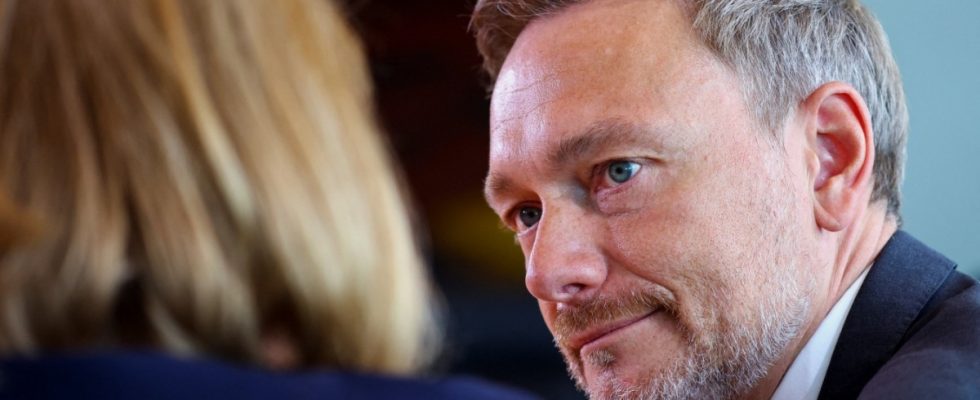After months of argument, the federal government has agreed on a draft budget for 2024 and financial planning for the years up to 2027. With total expenditure of 446 billion euros, the budget is the first since 2019 that is not characterized by special costs caused by the crisis and excessive new debt. The cabinet wants to adopt the bill on Wednesday at the last meeting before the summer break.
However, the internal traffic light financial dispute has still not been finally resolved. This applies in particular to the plans of Family Minister Lisa Paus (Greens) to introduce basic child security with annual costs of up to twelve billion euros. In the financial plan of Minister Christian Lindner (FDP), only two billion euros per year are planned for the project from 2025. Chancellor Olaf Scholz (SPD), meanwhile, wrote in a letter to the Minister for Family Affairs, from which ARD quotes, of an “intended improvement in performance” in basic child security. The Chancellor’s specification is that the government should have a joint concept for this by the end of the summer break.
Lindner wants to provide tax relief for companies willing to invest
However, this is likely to be difficult, and for two reasons: On the one hand, Lindner has been insisting for weeks that Paus – or the government as a whole – must save every additional euro for basic child security elsewhere. In addition, other ministers are likely to present their own wishes from the coalition agreement if Paus and the Greens insist on implementing their heart project. Lindner himself, for example, wants to provide tax relief for companies willing to invest in order to strengthen the economy, but has so far postponed this project for cost reasons. Transport Minister Volker Wissing (FDP) demands additional investment funds for the railways.
In order to curb spending in 2024, the government wants, among other things, to cap the federal subsidy to the statutory health insurance funds, reduce the subsidy to the pension insurance system and cancel the previous extra billion to stabilize long-term care insurance. Parental allowance is also to be reduced: So far, families with a taxable income of up to 300,000 euros can receive the benefit. In the future, this limit should be significantly lower. A new maximum amount of 150,000 euros is under discussion, but nothing has been decided yet. The aim is to save around 500 million euros. The government also only wants to participate in the financing of federal and state programs if the states bear half of the costs.
Finance Ministry circles said that the preparation of the budget would become even more difficult in the coming years. The budget is “petrified” because too much of the money is reserved for social and interest costs, for example. In the future, however, the federal government must invest more in education, infrastructure and new technologies and therefore cut other spending. “People have gotten used to being able to solve everything with money. There should always be more,” it said in the circles. After all, this trend has now been broken for the first time.

